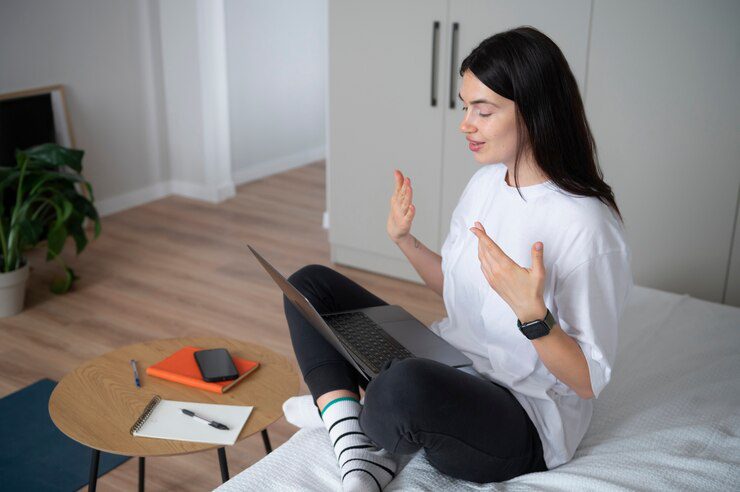In our hyper-connected world, the relentless flood of notifications, emails, and social media updates can easily leave us feeling overwhelmed and stressed. If you’ve ever found yourself scrolling endlessly through your phone or feeling anxious without your device, you’re not alone. The concept of a “Digital Detox” is gaining traction as a powerful tool for enhancing mental health. Let’s explore how unplugging can significantly improve your well-being, and why it’s worth considering for your mental health.
What is Digital Detox?
A digital detox involves taking a break from electronic devices and digital platforms to reconnect with the physical world and screen time reduction. This could mean a temporary break from social media, email, or even the internet. The aim is to alleviate the stress and anxiety associated with constant connectivity and to foster a healthier relationship with technology.
Why Consider a Digital Detox?
In today’s digital age, it’s easy to become overly reliant on technology. The constant notifications and digital engagements can lead to stress, anxiety, and even depression. According to a study published by the American Psychological Association, 43% of Americans report feeling stressed by the constant influx of digital information. This statistic underscores the need for a break from our screens.
Benefits of Digital Detox for Mental Health
Reduced Stress and Anxiety
One of the biggest perks of a digital detox is the significant drop in stress and anxiety levels. Constant exposure to news and social media can contribute to feelings of anxiety and overwhelm. A study conducted by the University of Pennsylvania found that participants who limited their social media use to 30 minutes a day experienced a significant decrease in anxiety and depression. By taking a step back from digital distractions, you give your mind a chance to relax and recover.
Improved Sleep Quality
Digital screens emit blue light, which can interfere with your body’s natural sleep cycle. Research from Harvard Medical School shows that blue light exposure before bedtime can delay sleep onset and reduce sleep quality. A digital detox, particularly in the hours leading up to bedtime, can help regulate your sleep patterns and improve overall sleep quality. Creating a tech-free bedtime routine can promote better rest and enhance your mental health.
Increased Focus and Productivity
Ever noticed how difficult it is to concentrate with constant notifications buzzing in the background? A digital detox can boost focus and productivity. Research from the University of California, Irvine, shows that it typically takes about 23 minutes and 15 seconds to regain concentration after an interruption. By reducing digital distractions, you can improve your concentration and accomplish tasks more efficiently.
Enhanced Real-life Connections
While technology allows us to stay connected virtually, it can sometimes hinder face-to-face interactions. A digital detox encourages more meaningful real-life connections. A survey by the Pew Research Center found that 27% of respondents felt that technology had negatively impacted their personal relationships. Taking a break from screens provides an opportunity to engage in deeper conversations and strengthen relationships with those around you.
Boosted Creativity and Problem-Solving Skills
Constant exposure to digital stimuli can stifle creativity and problem-solving skills. By unplugging, you create space for your mind to wander and explore new ideas. According to a study published in the journal “Creativity Research Journal,” individuals who took breaks from technology reported higher levels of creativity and better problem-solving abilities. Disconnecting from digital noise allows your brain to process information more effectively and come up with innovative solutions.
Tips for an Effective Digital Detox
Here’s a quick table with practical tips to help you implement a successful digital detox:
| Tip | Description |
| Set Clear Boundaries | Define specific times for digital use and stick to them. |
| Create Tech-Free Zones | Designate areas in your home where devices are not allowed. |
| Engage in Offline Activities | Read a book, go for a walk, or practice a hobby that doesn’t involve screens. |
| Schedule Regular Breaks | Allocate time each day for a complete digital break. |
| Practice Mindfulness | Use techniques such as meditation to help manage the urge to check devices. |
Conclusion
Incorporating a digital detox into your routine can be a transformative experience for your mental health. By reducing stress and anxiety, improving sleep quality, enhancing focus and productivity, fostering real-life connections, and boosting creativity, you can significantly enhance your overall well-being. As technology continues to evolve, making time for digital detoxes can help you maintain a healthy balance and improve your mental health.
Embrace the power of unplugging and discover the positive impact it can have on your life. Your mind—and your well-being—will thank you.







